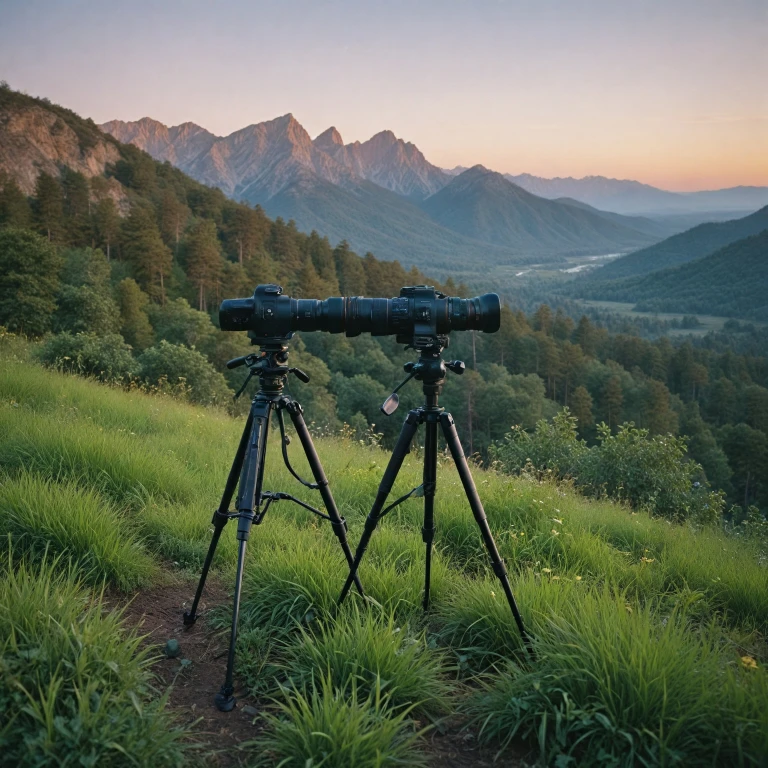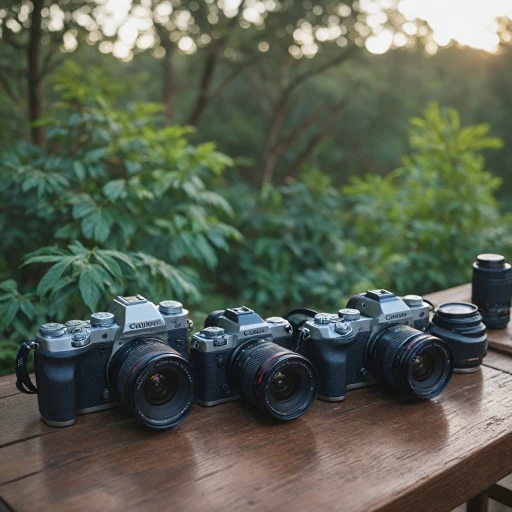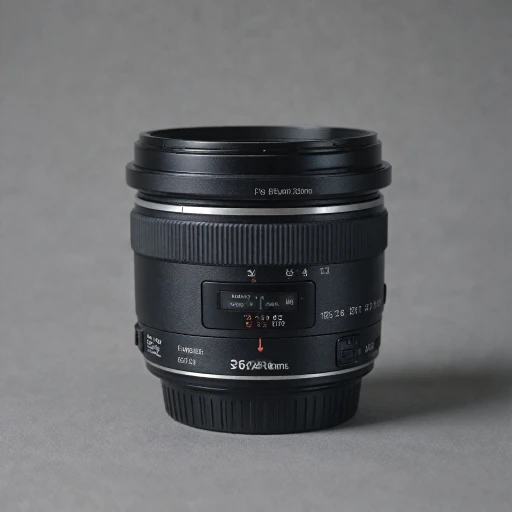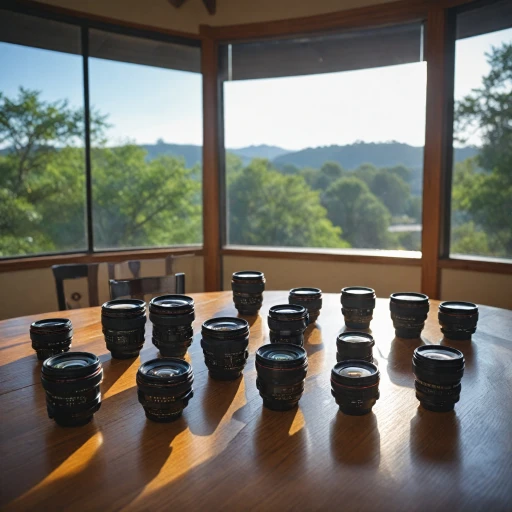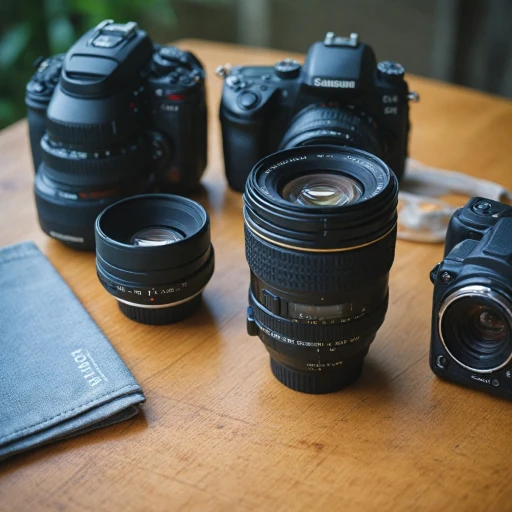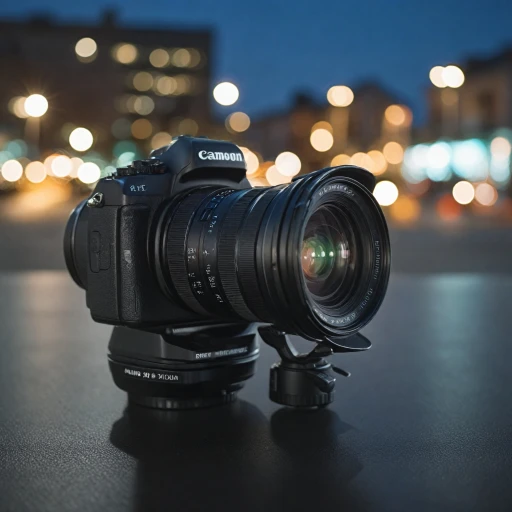
Understanding the Importance of a Tripod in Photography
The Role of Stability in Capturing Stunning Images
In the world of photography, the tripod is an unsung hero. It might not be the most glamorous piece of equipment, but its importance cannot be overstated. A tripod provides the stability needed to capture sharp, clear images, especially in low-light conditions or when using long exposure techniques. Whether you're a professional photographer or an enthusiastic hobbyist, understanding the role of a tripod can significantly enhance your photography skills.
Why Stability Matters
Imagine trying to capture the perfect sunset or a bustling cityscape at night. Without a stable base, even the slightest movement can result in blurry images. This is where a tripod comes into play. By providing a steady platform, tripods allow photographers to use slower shutter speeds without sacrificing image quality. This is particularly useful for landscape photography, astrophotography, and macro shots where precision is key.
Enhancing Your Photography Gear
Choosing the right tripod can be a game-changer. RRS tripods, known for their durability and precision, offer a range of options to suit different photography needs. From the lightweight carbon fiber series to the robust RRS Soar models, there's something for every photographer. Investing in a quality tripod is akin to choosing the perfect blend of style and functionality for your camera bag, ensuring that your gear is both practical and stylish. For more on selecting the right gear, check out this guide on camera bag purses.
Key Features to Consider
- Weight and Capacity: Ensure the tripod can support your camera's weight, especially if you use heavy lenses or accessories.
- Height and Leg Sections: Consider the max height and number of leg sections for flexibility in various shooting scenarios.
- Head and Ball Head Options: A good ball head allows for smooth and precise adjustments, crucial for capturing the perfect shot.
- Material: Carbon fiber tripods are lightweight yet sturdy, making them ideal for travel.
Understanding these elements will help you make an informed decision when selecting a tripod, ensuring it meets your specific photography needs.
What Makes RRS Tripods Stand Out?
Unique Features Making RRS Tripods a Top Choice
When it comes to photography equipment, choosing the right stuff is crucial. RRS tripods stand out with their advanced features and exceptional build quality, making them a favorite among photography enthusiasts and professionals alike. One of the standout features of RRS tripods is their precision-engineered design. Crafted primarily from carbon fiber, these tripods offer a combination of lightweight convenience and robust durability, essential for both indoor and outdoor shoots. Their fixed apex design provides heightened stability, allowing photographers to capture sharp, blur-free images even in challenging conditions. Moreover, RRS tripods are available in various series to cater to different needs. Whether you require a compact travel tripod or a sturdy TVC series tripod for demanding environments, RRS offers a range to suit all preferences. Additionally, the universal adaptability of their ball heads and leveling base ensures that you have the perfect setup for your shooting requirements. Another noteworthy feature is the quick-release functionality. The leg sections are designed to click-expand swiftly, making setup and adjustments a breeze. This is complemented by the quick column feature, which caters to varying height requirements effortlessly. The weight capacity of RRS tripods also deserves attention. With a remarkable balance between weight and strength, these tripods can easily support high-capacity gear, an essential attribute when working with heavy cameras and lenses. For those keen on exploring photography further, understanding the role of specialized accessories like a cold shoe mount can add an extra layer of versatility to your photographic endeavors, complementing the robust support RRS tripods provide. In essence, RRS tripods elevate your photography experience, bringing professional-quality support to every shot you take.Choosing the Right RRS Tripod for Your Needs
Selecting the Perfect RRS Tripod for Your Photography
When considering which RRS tripod to invest in, several key factors come into play to ensure you make the right choice for your photographic needs. The unique features and versatility of RRS tripods can significantly enhance your photography experience.- Assessing Your Maximum Height Requirements: Consider the max height you need when fully extended. Whether you need a compact travel tripod or a taller studio-ready alternative, knowing your height needs will enable you to make an informed decision.
- Choosing the Right Series Tripod: RRS offers a variety of series tripod options, each with distinct advantages. For instance, the TVC and Anvil series offer different features. The latter provides a robust base perfect for outdoor adventures with its fixed apex design.
- Weight Capacity and Stability Considerations: Take into account the weight your tripod can bear. Look for features like a ball head and leveling base which add stability and flexibility, particularly with heavy photographic equipment.
- The Material Choice - Carbon Fiber Tripod: A carbon fiber tripod like those from RRS is lightweight yet durable, preferred for its ability to reduce vibration while offering robust support.
- Understanding Leg Sections: Consider the number of leg sections (leg, leg sections) you’re comfortable with, as more sections can impact the tripod's overall stability and quick deployment time in the field.
- Evaluating Portable Options: If portability is your main concern, RRS offers travel tripod versions which are optimized for ease of transportation without sacrificing performance.
- Explore Online Options: Platforms like Amazon provide detailed reviews and specifications that help to narrow down your choices, including availability of RRS stock.
Setting Up Your RRS Tripod for Optimal Performance
Mastering the Art of Setting Up Your RRS Tripod
Setting up your RRS tripod correctly is crucial in ensuring the stability and performance required for professional photography. Whether you're dealing with a lightweight travel tripod or a robust RRS Soar series, here's how to maximize your tripod setup.
- Choosing the Right Location: Identify a stable surface whether you’re inside a studio or out in the field. Uneven ground can be adjusted by manipulating the leg sections.
- Adjusting the Leg Sections: Begin with the widest leg sections to provide a stable base. If you're aiming for maximum height, gradually extend to the narrower sections.
- Securing the Fixed Apex: Ensure the fixed apex or center column is tightly fastened. This avoids any loose movements in your camera setup.
- Mounting the Ball Head: Attach the ball head securely to the apex. The RRS Anvil arc and universal soar ball heads are perfect choices for quick adjustments and secure grip.
- Balancing the Load: Spread the weight evenly to maintain stability. Check the tripod's weight capacity, particularly if using heavier cameras or lenses.
- Incorporating the Leveling Base: For uneven terrain or when precision is crucial, the RRS series tripods offer a leveling base to achieve perfect horizontality.
- Adjusting the Center Column: Use the quick column feature to fine-tune the camera position efficiently. This option is available in various RRS stock.
- Final Touches: Double-check all connections by using the quick-release features if included, and ensure everything is locked into place before using the camera.
By following these steps, you'll ensure that your tripod is set up for optimal performance, providing a solid platform for capturing stunning photographs. Transitioning these skills into real-world applications allows for consistent image quality regardless of shooting conditions.
Maintaining Your RRS Tripod for Longevity
Caring for Your Gear: Extending the Life of Your Tripod
Maintaining your RRS tripod is essential to ensure it serves you well for years to come. These tripods are designed with durability in mind, but like any photography gear, they require some care. Here are some key tips to maintain the longevity and performance of your RRS tripod.
- Regular Cleaning: After every photoshoot, especially in harsh environments, it's important to clean your tripod. Dust, sand, and moisture can accumulate and damage the components. Use a soft brush to remove debris from the leg sections and a damp cloth for wiping down the carbon fiber.
- Inspect the Leg Locks: The leg locks are crucial for the stability of your tripod. After every use, make sure to check these locks for any sign of wear or damage. Keeping these mechanisms well-functioning ensures stability and safety for your camera, especially when maximizing your tripod's height or capacity.
- Lubricate Moving Parts: To ensure smooth operation of the ball head and leg adjustments, apply a suitable lubricant. This helps the components move effortlessly and prevents wear that can arise from friction over time.
- Store Properly: When not in use, ensure your RRS tripod is stored in a safe, dry place. Avoid environments with extreme temperatures or humidity, which can affect the carbon fiber material.
- Check Fastening and Connections: Regularly inspect and tighten any bolts or screws, such as those on the quick release system or fixed apex section. This helps maintain the structural integrity, especially when frequently adjusting the height or using a ball head for dynamic photography needs.
Incorporate these simple maintenance practices to keep your RRS tripod in optimal condition. For photographers seeking robust support, these measures are vital in ensuring your tripod remains a reliable companion in capturing high-quality images.

